News
-
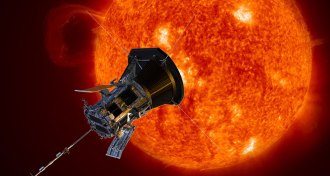 Astronomy
AstronomyNASA’s Parker probe is about to get up close and personal with the sun
The Parker Solar Probe is about to make a historic voyage to touch the sun.
-
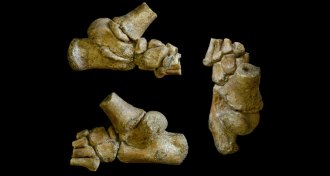 Anthropology
AnthropologyFoot fossil pegs hominid kids as upright walkers 3.3 million years ago
A foot from an ancient hominid child suggests that Lucy’s species, Australopithecus afarensis, walked early in life.
By Bruce Bower -
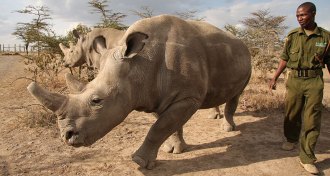 Animals
AnimalsResearchers create hybrid embryos of endangered white rhinos
Scientists have made the first rhino embryos, providing a small glimmer of hope for the nearly extinct northern white rhinoceros.
-
 Health & Medicine
Health & MedicineEvidence grows that an HPV screen beats a Pap test at preventing cancer
More research finds that a test for human papillomavirus infection catches precancerous cervical cells better than the standard test, a Pap.
-
 Life
LifeThis ‘junk’ gene may be important in embryo development
Mice — and maybe humans — can’t get past the two-cell stage of development without a particular type of jumping gene.
-
 Genetics
GeneticsKoala genome may contain clues for helping the species survive
The complete genetic instruction book of a koala may explain why the cuddly-looking cuties are such picky eaters, among other secrets.
-
 Quantum Physics
Quantum PhysicsMini machines can evade friction by taking quantum shortcuts
Special maneuvers allow researchers to create tiny machines that are as efficient as possible.
-
 Psychology
PsychologyKids today are waiting longer than ever in the classic marshmallow test
Preschoolers wait longer for extra treats than they used to. What does it mean?
By Bruce Bower -
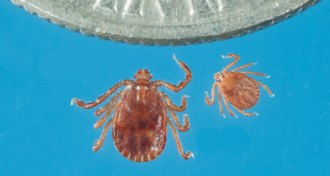 Animals
AnimalsThis invasive tick can clone itself and suck livestock dry
The newly invasive longhorned tick, now found in four continental U.S. states, spreads human diseases in its native Asia. Here, it’s mostly a threat to livestock — so far.
-
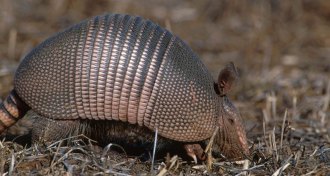 Life
LifeLeprosy lurks in armadillos in Brazil’s Amazon
Armadillos in the Brazilian Amazon are often infected with leprosy, which they may pass to people.
-
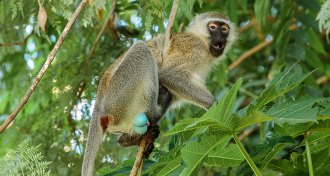 Animals
AnimalsWhy some mammal species don’t have descended testicles, but most do
New research studying genetic vestiges suggests that descended testicles are as ancient as the first placental mammal.
By Angus Chen -
 Quantum Physics
Quantum PhysicsA tiny version of this physics toy is revealing quantum secrets
Scientists created a quantum Newton’s cradle to study thermal equilibrium.